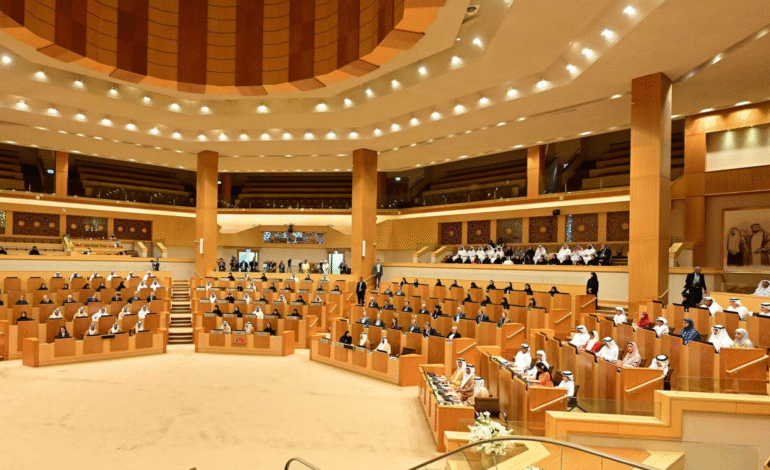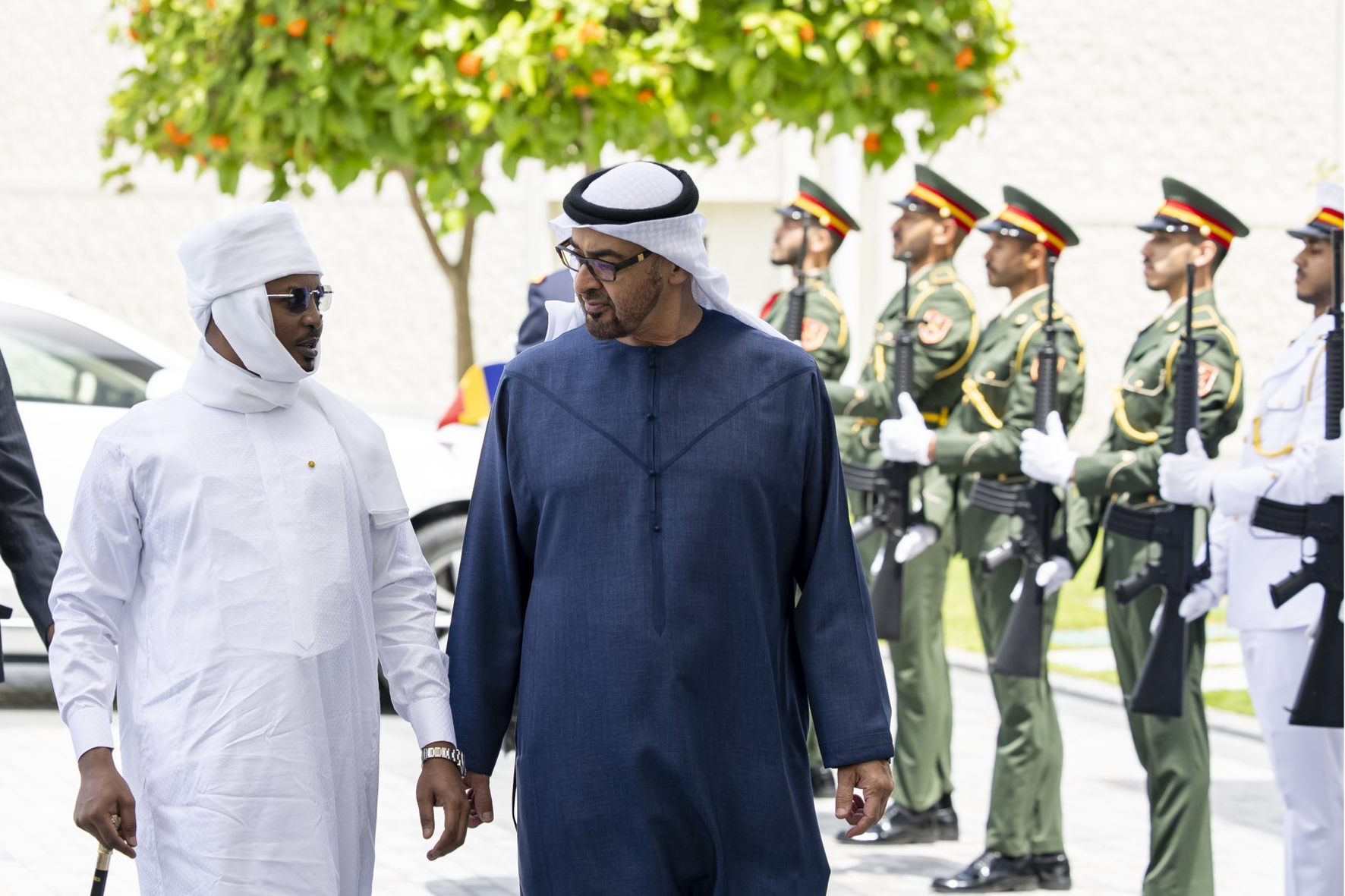UAE and EU Strengthen Parliamentary Ties in Abu Dhabi Meeting

In a meaningful step toward strengthening international cooperation, the Federal National Council (FNC) of the United Arab Emirates convened a special session titled “UAE-European” on Monday. Chaired by FNC Speaker Saqr Ghobash, the session took place at Zayed Hall in Abu Dhabi and formed part of the second term of the 18th legislative chapter. The gathering underscored the UAE’s dedication to promoting global dialogue and enhancing relations with the European Union across political, diplomatic, and economic spheres.
Roberta Metsola’s Visit Highlights EU-UAE Cooperation
This high-level parliamentary engagement drew global attention, particularly with the presence of Roberta Metsola, President of the European Parliament. Metsola was joined by a delegation of ambassadors, senior EU officials, and influential business leaders from across the EU. Their participation provided a platform to deepen discussions on mutual interests and strengthen the institutional framework binding the UAE and the EU.
Prominent UAE Leaders Reflect Commitment to Diplomacy
The session attracted senior figures from the UAE government, including Abdullah Bin Sultan bin Awad Al Nuaimi, Minister of Justice; Dr Thani Bin Ahmed Al Zeyoudi, Minister of Foreign Trade; Ahmed Ali Al Sayegh, Minister of State; Lana Zaki Nusseibeh, Assistant Minister for Political Affairs; and Omar Obaid Al Hassan Al Shamsi, Undersecretary of the Ministry of Foreign Affairs. Their attendance highlighted the multidisciplinary nature of UAE-EU cooperation, touching on foreign policy, economic development, justice, and strategic affairs.
Private Sector and Youth Participation Emphasize Inclusivity
In addition to political leaders, ambassadors from EU member states accredited to the UAE were present. Business figures from leading European enterprises operating in the UAE also attended, underlining the private sector’s role in strengthening cross-continental ties. Notably, youth delegates from the Emirates Youth Councils and the Children’s Parliament were involved, reinforcing the UAE’s commitment to fostering youth engagement in diplomacy.
Saqr Ghobash’s Emphasis on Constructive Global Dialogue
In his address, Speaker Saqr Ghobash extended a warm welcome to Roberta Metsola and her delegation, highlighting the strategic significance of the UAE-European dialogue. He emphasized the importance of shared values, peaceful coexistence, and mutual respect as guiding principles in bilateral relations.
Ghobash remarked, “We are honored by your presence as esteemed guests. We also celebrate your role as partners in a dialogue rooted in shared parliamentary values—values that reflect a unity of conscience in our common humanity and a mutual effort to promote noble policies that place human dignity at the forefront.”
He underscored the UAE’s unwavering commitment to openness and peaceful engagement, principles firmly rooted in the country’s diplomatic traditions. The UAE’s history of inclusive and balanced foreign policy is often credited to its unique governance model and a leadership that values diplomacy and international cooperation.
Honoring the Legacy of Sheikh Zayed in Modern
Ghobash paid tribute to the founding father of the UAE, the late Sheikh Zayed Bin Sultan Al Nahyan, acknowledging his enduring vision for the nation. He emphasized how the current leadership—President His Highness Sheikh Mohamed Bin Zayed Al Nahyan, His Highness Sheikh Mohammed Bin Rashid Al Maktoum (Vice President, Prime Minister, and Ruler of Dubai), the Supreme Council Members, and His Highness Sheikh Mansour Bin Zayed Al Nahyan (Vice President and Chairman of the Presidential Court)—continues to uphold Sheikh Zayed’s legacy.
Their leadership, Ghobash noted, plays a crucial role in steering the UAE’s foreign relations toward dialogue, peaceful conflict resolution, and global partnership. These values have not only shaped the UAE’s regional influence but also elevated its international standing in multilateral institutions such as the United Nations, World Trade Organization, and Inter-Parliamentary Union.
Roberta Metsola’s Visit as a Diplomatic Milestone
The visit of Roberta Metsola marks a pivotal moment in parliamentary diplomacy between the EU and the Gulf region. As a prominent figure in European politics and a staunch advocate for democratic engagement, Metsola’s participation reaffirmed the EU’s intent to build closer ties with key Middle Eastern nations, including the UAE.
Her presence in Abu Dhabi demonstrated a shared interest in promoting strategic dialogue on common challenges such as global security, climate action, and economic resilience. Metsola’s speech emphasized the importance of international collaboration in shaping a fair and sustainable global future. She acknowledged the UAE’s role in fostering peace and stability through pragmatic diplomacy.
Growing Importance of Parliamentary Diplomacy
Parliamentary Diplomacy as an Emerging Global Trend Parliamentary diplomacy has emerged as a powerful complement to traditional foreign affairs. Unlike conventional diplomacy, which primarily takes place through executive branches, parliamentary diplomacy engages elected representatives, offering broader perspectives on global issues.
By hosting sessions like “UAE-European,” the FNC contributes meaningfully to shaping the UAE’s soft power diplomacy. These engagements offer a space for mutual understanding, policy alignment, and shared learning. They also open doors for cooperation in non-traditional sectors, including education, innovation, gender equality, and digital governance.
Youth Participation Signals Future-Focused Diplomacy
A unique aspect of this session was the active involvement of youth groups such as the Emirates Youth Councils and the Children’s Parliament. This reflects the UAE’s strategic focus on preparing the next generation for leadership in diplomacy, governance, and global affairs.
Youth engagement in diplomatic forums is more than symbolic—it ensures that policymaking remains inclusive and future-oriented. The UAE’s commitment to empowering its youth aligns with the European Union’s approach to civic participation and innovation-driven governance.
The youth delegates present at the session witnessed firsthand the intricacies of global diplomacy, parliamentary functions, and bilateral cooperation. Their involvement served as an educational opportunity and a testament to the UAE’s progressive vision of diplomacy.
Pathways to Strategic and Inclusive Partnerships
The special session between the FNC and European delegates represents more than just symbolic gestures. It forms part of a broader effort to create resilient and inclusive partnerships that address global challenges. Both sides acknowledged the need for more institutional mechanisms to deepen parliamentary cooperation, strengthen legislative frameworks, and align policies on mutual priorities.
These priorities include sustainable development, climate resilience, digital transformation, public health, and education. As global challenges grow increasingly interconnected, the UAE and EU aim to build a robust foundation based on shared interests, mutual trust, and the will to cooperate across borders.
FNC’s Role in Shaping Modern UAE Diplomacy
The special “UAE-European” session hosted by the Federal National Council exemplifies the UAE’s multidimensional approach to diplomacy—one that values transparency, inclusiveness, and continuity. As the legislative arm of the UAE, the FNC plays a vital role in reinforcing the country’s global presence through people-centric and institution-driven diplomacy.
This session represents not just a political milestone but a vision for deeper, more structured cooperation between the UAE and the European Union. With the presence of leaders, youth representatives, and diplomats under one roof, the event symbolizes the evolution of modern diplomacy—dynamic, inclusive, and forward-thinking.








1 Comment
[…] on economic and trade diplomacy, Panis has worked extensively on strengthening ties between the European Union and the Middle East. His focus in the UAE includes promoting economic, cultural, and investment partnerships. Slovakia […]
Comments are closed.